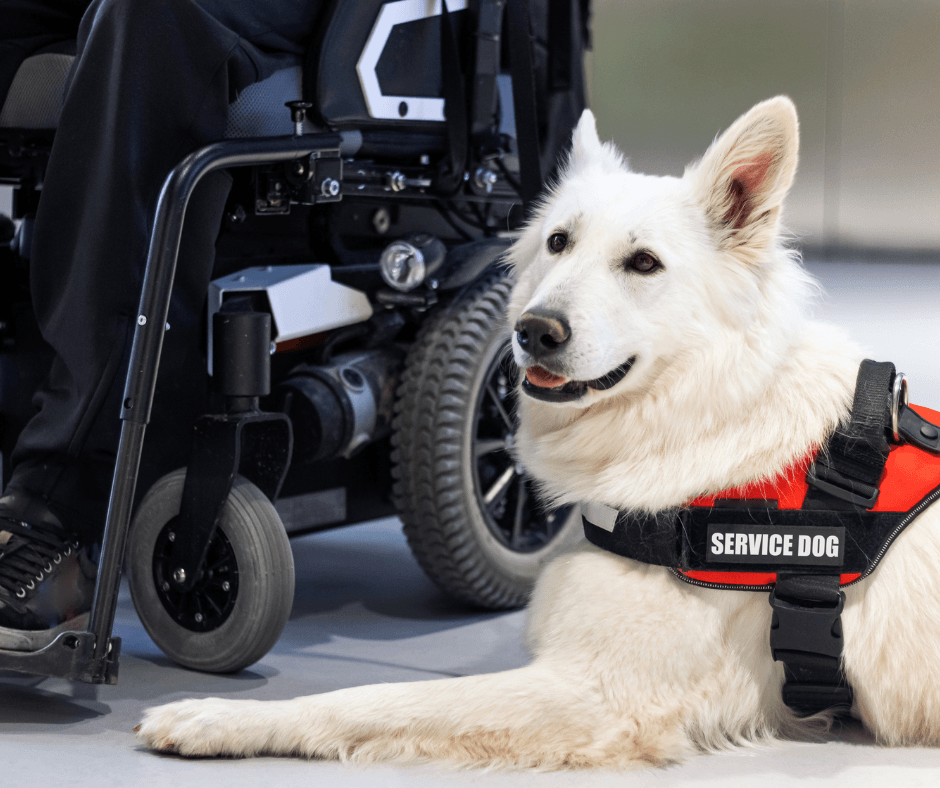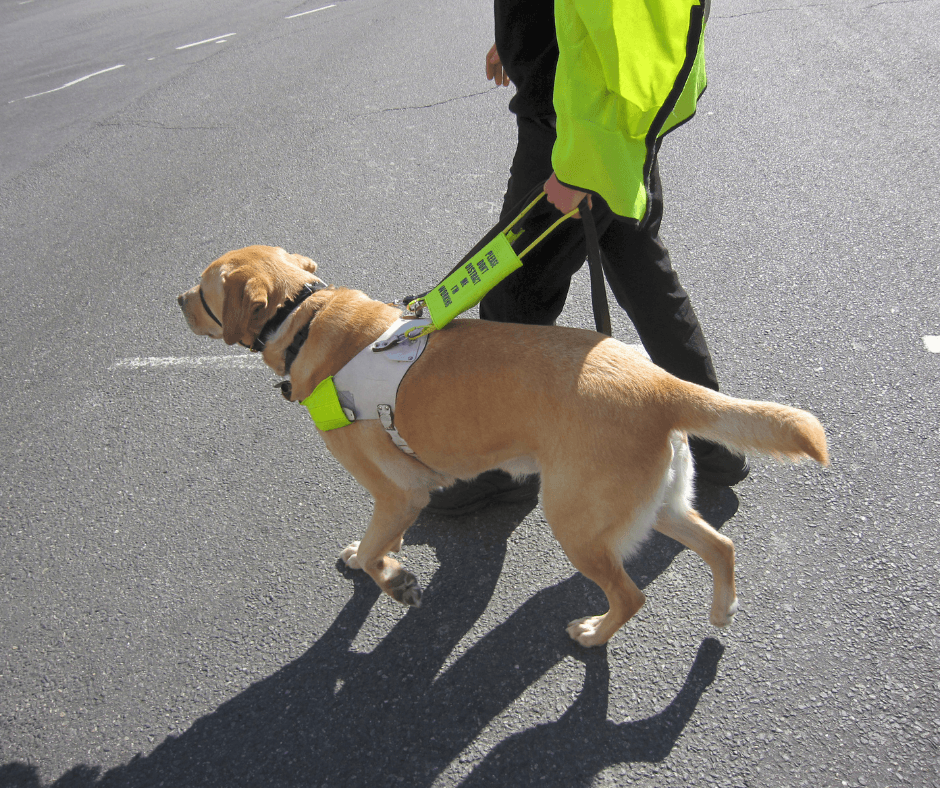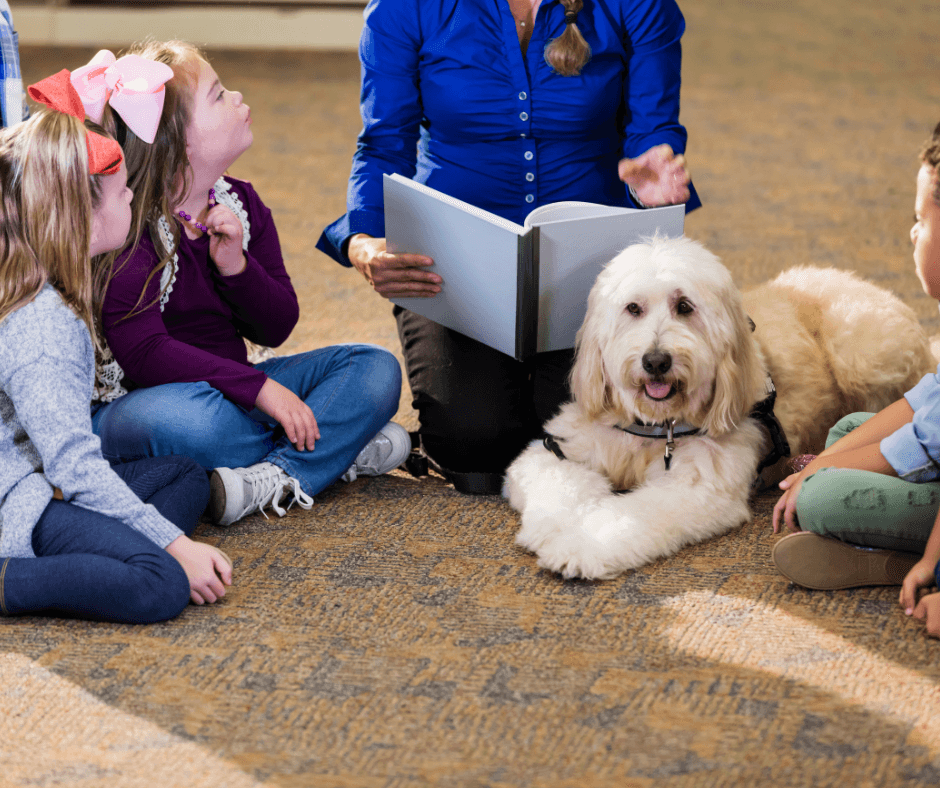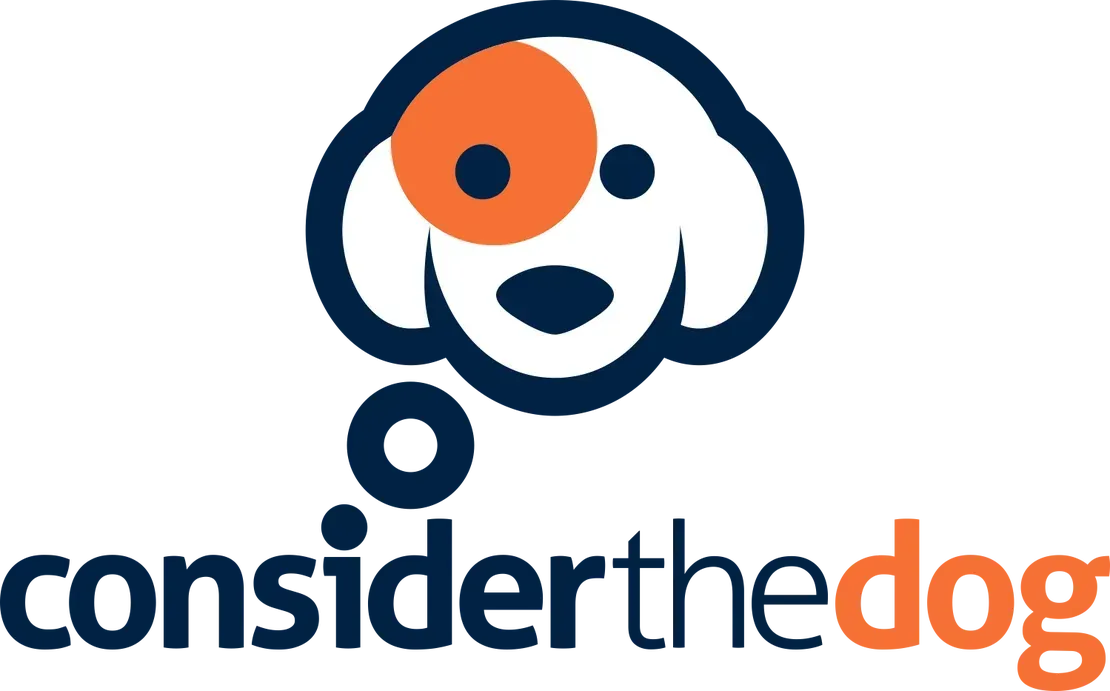Assistance Dogs & Disability Support
Personalised Task Training for Neurodivergence & Disability
What are they and who are they for?
Not every dog is destined to be an assistance dog.
And not every person who needs support qualifies for a certified one.
That’s where owner-trained assistance dog programs come in.
At The Complete Canine, we support clients who want to train their own dogs to assist them with everyday life — whether you're neurodivergent, have a physical disability, or are seeking support for mental health challenges.
But let’s start with an important truth.
New Zealand has strict rules around official disability assistance dogs.
Only a small number of organisations are authorised to certify dogs with public access rights (like the right to enter shops, cafes, buses, etc.).
Blind & Low vision NZ
Assistance Dogs New Zealand Trust
Hearind Dogs for Deaf People NZ
Mobility Assistance Dogs Trust
Perfect Partners Assistance Dogs Trust
K9 Medical Detection
Any dog trained outside these organisations will not be officially recognised as a certified assistance dog — meaning your dog cannot legally enter public-access restricted areas (like supermarkets, malls, or restaurants).
This would technically make your dog an 'Emotional Support Dog'.



So what can we do?
Plenty.
We can train your dog to assist you in meaningful ways at home, in low-distraction environments, or in permitted public spaces. These tasks may include:
Deep pressure therapy
Interrupting Meltdowns and stimming
Lap laying or snuggling on cue
Find parent/caregiver
Blocking/creating space in crowds
Retrieving and carrying items
Scent based alerts for diabetes, seizures, allergies or anxiety attacks
This is task-specific training built around your needs and your dog’s abilities.
Task Training Takes Time
Training a dog to be a reliable support animal is precise, intensive work. It’s not just about teaching a dog to do a trick — it’s about teaching a dog to respond appropriately under stress, consistently, and with emotional attunement.
Here’s what that process often involves:
Solid foundational obedience
Your dog must first master calmness, engagement, recall, leash walking, and handler focus — especially in distracting environments.Confidence, resilience, and age-appropriate maturity
Dogs need time to grow before they can emotionally and physically support someone else. Most puppies aren't ready for task work until 12+ months, and some continue developing well into their second year.Ongoing environmental exposure
Socialisation, neutral behaviour around dogs/people, and recovery from stress are all critical skills.Custom task-specific training
We’ll design training around your needs — but only once the dog has shown they’re ready.
Not every puppy is meant for this work
And that’s okay.
Even with great training and early work, not all dogs are suited for assistance work. Some are too environmentally sensitive, too handler-independent, or simply find the work stressful. That’s why we prioritise honest evaluations as your dog grows and learn what their strengths are.
Sometimes, the best match isn’t a puppy at all.
Depending on your needs, an older, temperament-tested dog may be a better fit for the job. If so, we’ll guide you through that decision process with compassion and honesty — not false promises.
Here is how it works
Framework
We offer customised, step-by-step training plans designed to:
Build strong obedience foundations
Introduce confidence-building and emotional regulation.
Begin task-specific behaviours when appropriate
Provide you with detailed guidance, video examples, and ongoing support
We can work with puppies, adolescents, or adult dogs, depending on what stage you’re at.
Stage 1: Foundation & Exposure (8-16 weeks) to build confidence, trust and basic life skills.
Stage 2: Obedience & Neutrality (4-6 months) to create reliable foundation behaviours in different environments
Stage 3: Public Manners & Advanced Obedience (6-12 months) to strenghten control, impulse regulartion and real world obedience
Stage 4: Task introduction (12-18 months) introduce and strengthen disability support tasks
At any stage we have behaviourial and suitability reassessments in case a dog shows signs they are not suited for public task work.
If you’re interested in owner-trained support dog work for yourself, your child, or someone you care for — let’s talk. I’ll ask you some key questions about your goals, your dog (or future dog), and we’ll create a realistic plan to see if this path is right for you.
Disability Assistance Programs
18 month Full Task Assist Program
$7300
Initial Meet & Greet to decide if we are a good fit
Program lasts 18 months
Includes 2 private sessions a month (36 in total)
Puppy School
Obedience 5 week course
Public Access Tests (uncertified)
24 Puppy Day School sessions
Full email and whatsapp support
Regular training plan adjustments
Training of advanced task specific skills
Puppy selection help if needed
Can be paid in installments
Limited availability due to time commitment
Custom Program
on request
Training an assistance dog is a big commitment — and it’s totally okay if you’re unsure where to start or whether the full program is right for you.
If you’re looking for help but aren’t sure what level of support your dog (or future dog) needs, just send me a message. I’ll ask a few questions about your goals, your situation, and your dog’s current stage — and from there, I’ll give you honest advice about which program suits you best.
Whether you’re just starting out, working with a limited budget, or need help deciding if your dog is a good candidate, I’m here to help you make an informed choice.
Fill in the form below and I'll contact you ASAP.
FAQ
Easy!
1. Fill out the contact form above the FAQ, tell me about your dog, challenges and your goals. This helps me recommend the best fit! We choose the best program together. No hard sells, just a honest conversation about what will help you and your puppy thrive long term.
From there we will look at both our schedules and availability so we can start training.
Yes, you can train your own dog to assist you with daily tasks related to a disability or neurodivergence. However, it's important to know that owner-trained dogs do not receive official public access certification in New Zealand unless they go through one of the government-recognised organisations.
An assistance dog performs trained, task-specific behaviours that directly support a person’s disability (like interrupting anxiety spirals or retrieving dropped items).
An emotional support animal provides comfort through their presence but is not trained for specific tasks. In New Zealand, only trained and certified assistance dogs are granted legal public access rights.
Yes, but the process will involve the whole family. Children can absolutely benefit from a well-trained support dog, but an adult must take on the handler responsibilities. We work with families to ensure the dog is safe, reliable, and a good fit for the child's needs.
Both are possible! If you already have a dog, we’ll start with an assessment to see if they’re suited for support work. Not all dogs have the temperament for this kind of training, and if that’s the case, we’ll talk through alternative options together.
No. This program does not lead to official certification or public access rights under NZ law. Only organisations recognised by the government (like Blind Low Vision NZ or Assistance Dogs NZ Trust) can certify assistance dogs.
However, your dog can still be trained to perform valuable support tasks at home or in permitted public spaces.
No. Unless your dog is certified by a government-authorised organisation, they are not legally allowed in public-access restricted areas, even if they’re well-trained. This includes supermarkets, cafés, public transport, and most indoor venues.
To have legal public access rights, you need to go through a certified organisation such as:
Assistance Dogs New Zealand Trust
Blind Low Vision NZ
Mobility Assistance Dogs Trust
These groups assess, train, and certify dogs under strict guidelines. Our programs are owner-guided and do not result in official certification.
Training can begin as early as 8 weeks, but the first phase is all about building solid foundations: calmness, socialisation, engagement, and basic manners.
Task-specific training usually starts closer to 12 months, once your dog is emotionally mature and behaviourally stable.
Realistically, it takes 12 to 24 months of consistent, progressive training to build a reliable assistance dog. That includes foundations, social exposure, behaviour neutrality, and finally, task-specific behaviours. We’ll guide you through each phase at your dog’s pace.
Not at all. We offer custom training plans tailored to your goals. If you just want to teach your dog grounding techniques, alerting, or a specific support skill, we can focus on that without requiring the full long-term program.
Definitely! Many of our assistance dog clients start with Puppy Programs or Bootcamp to build strong foundations, then move into task training later. It’s a flexible path designed to grow with your dog.
For task training, you’ll need to be involved in most sessions. The dog must learn to support you, not just perform skills with the trainer. That said, some foundation or Bootcamp sessions can involve trainer-only work to build early behaviours.
Yes! We can advise you on temperament traits, breeds, and red flags, and even support you in evaluating individual dogs from breeders, rescues, or rehoming situations. Choosing the right dog at the start makes a huge difference in success.
What our students say





